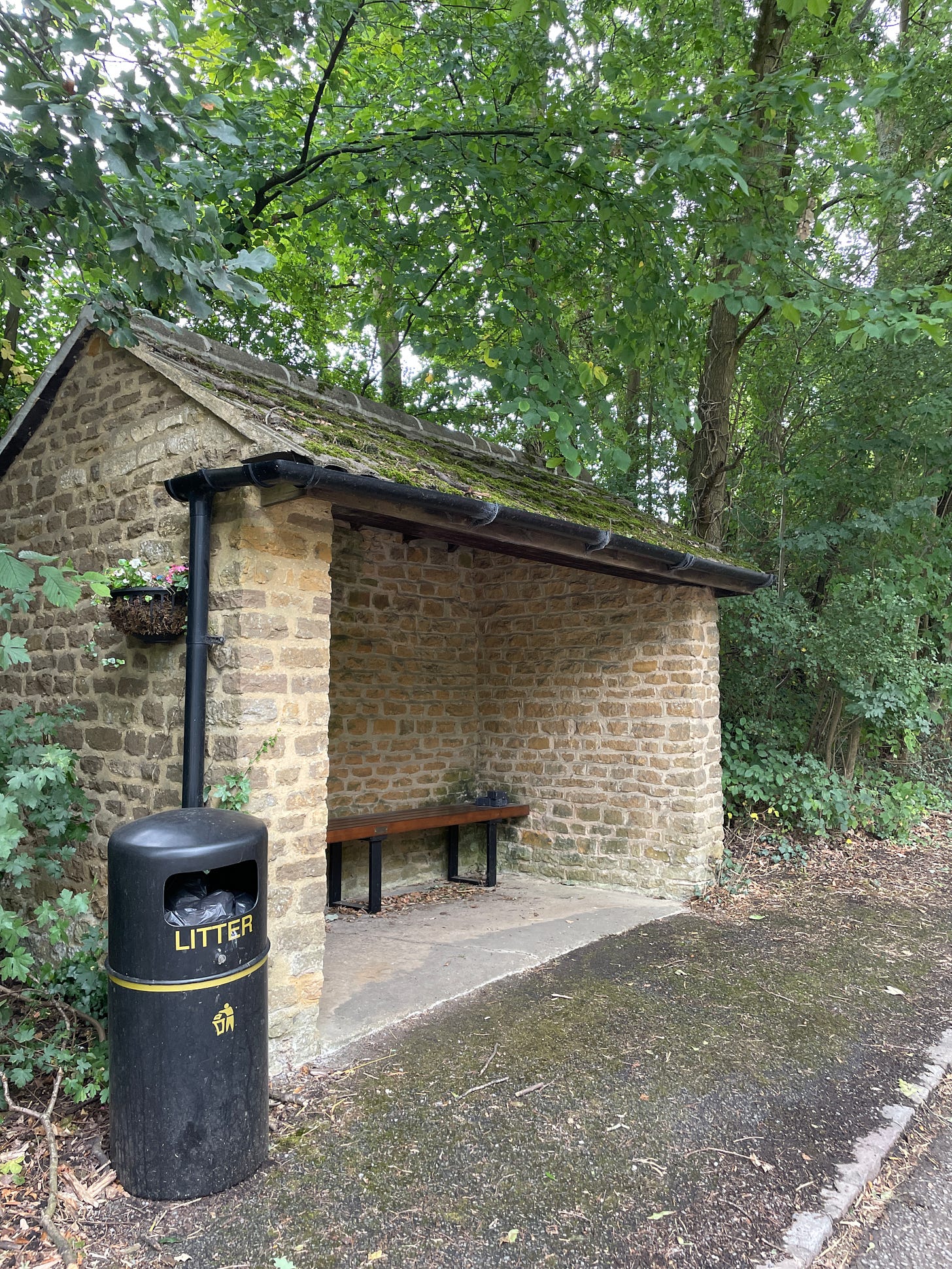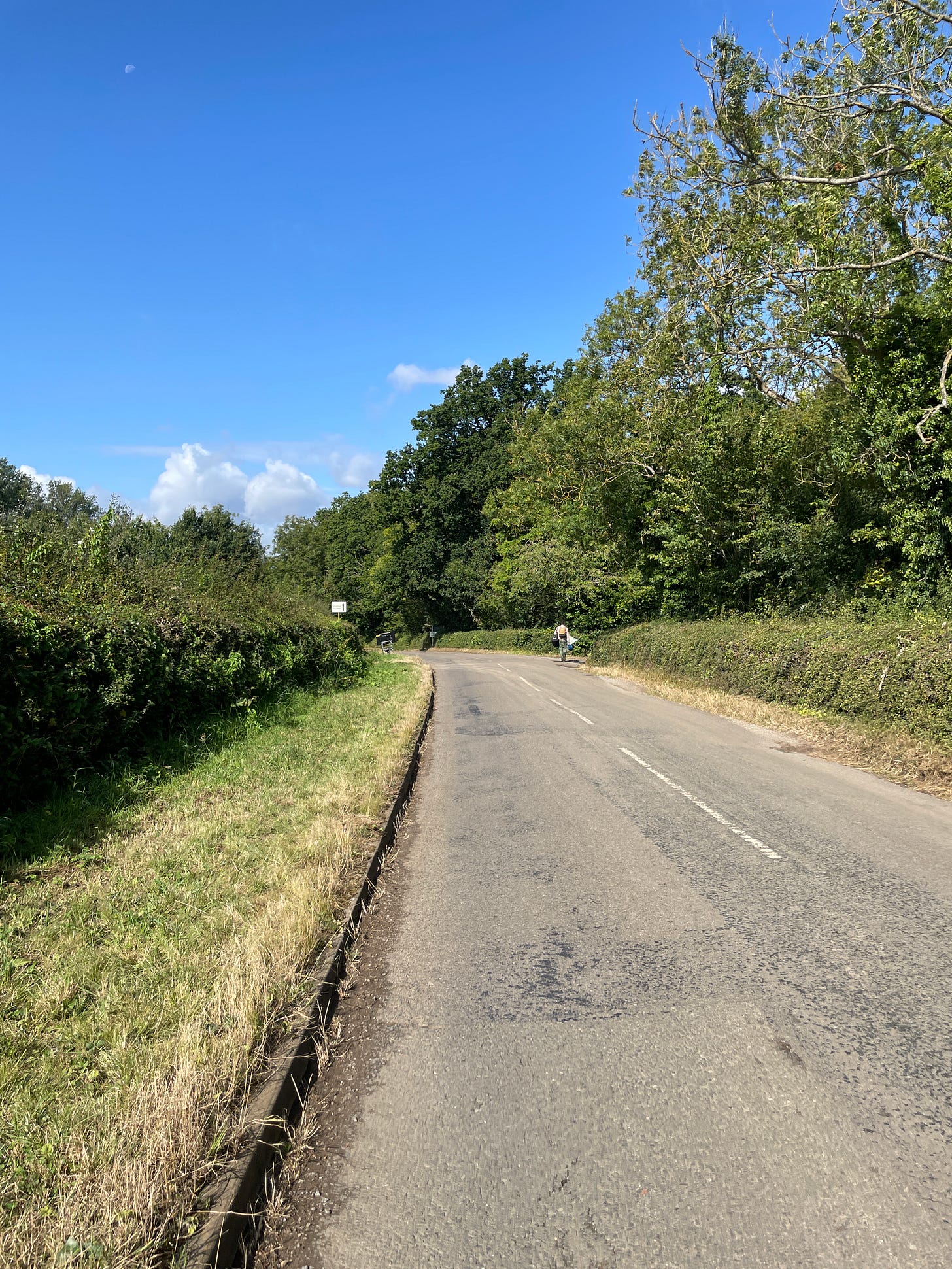The Venga (or other, more modern and trendy) Bus is coming!
With so many big festivals and events looking to more sustainable, surely public transport could be better integrated?
I missed my post last week as I was deep in books trying to solve a London Underground design mystery (which I have yet to solve), but I’m back this week to talk about public transport and big events!
Today I made a journey from my London home to Kelmarsh, Northamptonshire and back. This, unusually for me, was not for some transport-related adventure, but to go to a festival…
I am, by no means, a festival-goer. I wish I was – a lot of them sounds fun and I would have loved to see, say, Paul McCartney play Glastonbury – but day-drinking gives me migraines, I have three back disorders that make sleeping on the ground unpleasant, and I have a deep-seated fear of any kind of temporary toilet facilities and there is only so much binge-eating Imodium one can do. However, I also sometimes do true storytelling gigs with the group Natural Born Storytellers, and this year they invited me to Shambala festival to perform, and I decided to come along.
My performer ticket entitled me to stay the whole weekend, but that wasn’t going to happen, so this morning at 7:20 I left my flat to speed along the Victoria Line to Euston and catch a train to Northampton. From there, I walked across town (it’s one of many examples of a poorly connected rail and bus station in this country), caught the X7 bus towards Leicester, and got off at Kelmarsh before walking for about 15 minutes to the festival gates. From door to looking through vintage clothing in the heart of the festival, the journey took me about 3.5 hours, and other than the fact that the X7 bus is in serious need of some suspension, it was all pretty painless.
Shambala, as I already knew, is probably one of the hippiest of all the festivals. There are tents full of spiritual practices with gongs and incence, food foraging walks, events centred on bees, and documentaries about the Spy Cops scandal, and vendors are not allowed to sell any meat products onsite (and if you bring your own meat, they request that it’s ethically and locally sourced). You have to bring your own cups and water bottles, and they seem to have complete ban on single-use plastic. They clearly have an ethos that is extremely enviornmentally-focused.
However, their website states:
As you may already know, because we bang on about it enough, over 90% of our remaining carbon footprint is made up of audience travel, and we’re constantly looking for new ways to hammer that down…
In 2023, you lot set a new record for arriving on public transport, with over a third of you rocking up on one of our coaches, by bicycle or by train and shuttle bus! Huge big ups to every single one of you who chose to travel to Shambala sustainably!
I found this pretty shocking. In a festival all about sustainability from what I can see, fewer than half of the attendees are coming by public or active transport? And I understand. I’m coming from London, where it’s easy to get to most places by public transport, but the festival offered coach transport on the first few days from Market Harborough and Long Buckby (the two nearest stations), you can get the X7 bus which runs hourly from Northampton, Market Harborough, and Leicester, and from those places (particularly Leicester), you can get trains to all over the country. They also offer coach travel from a number of major cities straight to the festival. People, of course, have camping gear, but people travel on trains with luggage all the time. In fact, another man on the bus with me today was heading to the festival with a small tent and backpack (strange choice, as it’s the last day, but no judgement), and as I was leaving this afternoon someone across the street was catching the bus in the other direction with a big camping backpack. The festival even offers cheaper tickets to those travelling by public transport. So what’s stopping people?
The are the obvious answers to this question. Convenience. Habit. Cost. The fact that you can pile five friends into an SUV with all your gear and have a secondary sleeping space. But for something like this where, presumably, most of the audience are people that care more than just superficially about the environment, how do you get them to change without the festival imposing strict rules about how people travel?
I want to say the festival itself could just make it easier. And they could. They could offer coaches from more cities, or use some kind of software to plan coach routes that stop and pick up people from near their homes on the way in. They could offer their own sort of on-demand taxi services to the local stations, so even if you were coming at a different time to the coaches, you (and any others at the station) could be picked up in a minibus and driven to the festival. And I think that that the festival organisers should, and clearly are trying to, do all of those things. But I think the real answer also involves better collaboration between festivals and other big events and existing public transport providers.
A good example of this is Brighton Pride. Last year, there were reduced train services that weekend, leading to a lot of stress and upset for those attending and bad PR for Southern. This year? Southern offered additional services, with clear information about how to use them and from where. More passengers. More money for them. Less CO2 emissions. Everyone wins. I’ve seen social media posts this week from GWR about getting to Reading Festival as well, and they do the same for Glastonbury.
I think train operators are getting better at doing this, but bus operators need to do the same. Festivals are, by their nature, in big open areas that are hard to get to. No one is going to build a new railway station just to serve a festival, so bus connections are vital.
A festival like Shambala happening in Northamptonshire? Run extra buses. Extend routes. Hire in a coach company to give you extra support. And advertise the hell out of this! Partner with the festival. Have it listed as part of the ticket booking process. Advertise it in your stations and at your stops. Make this partnership clear!
The X7 bus is listed nowhere (that I can see) on the Shambala website. And why would it be? It’s difficult to get to from Northampton Station, it’s a rickety single-decker bus, and trying to get the festival crowd on it would overwhelm the service. But if they created a partnership with the festival? Then everyone gets better service.
One of the things that Louise Haigh has been doing since becoming Transport Secretary is promising investment in and local control of bus services. But having that local control will give bus operators the chance to really tailor their service to local needs. Whether that’s a football match or a Christmas market or a music festival, the service should be adapted as needed to make the experience better for everyone. Big event on Sundays when you don’t normally run buses? Swap that around. Offer drivers extra pay or extra days off, but find a way to make it work. Make public transport an easy, go-to option for a day, night, or weekend out an exciting event. If you want people to use transport, you’ve got to make it useable. Then maybe, the biggest environmental problem you will face is the smell of 50 people on a bus who haven’t showered in four days.

This week on All On This Together, I’ve got one of the performers I was telling stories with at Shambala this weekend, Chris Stokes, weaving some brilliantly-told tales of the highs and lows of public transport journeys. You can watch it on YouTube, or listen on your favourite podcast app.






Great writeup, sad there's so little change since I stopped doing festivals in the mid 00s.
Re the rail option, Roskilde Music Festival -an out of town site - has its own train station on a single track branch line out of the main Roskilde station, trains run direct to site from Copenhagen Central during festival dates so festival goers from Denmark, southern Sweden and northern Germany could make it there using public transport only in under 3.5 hours...